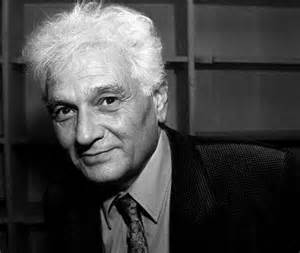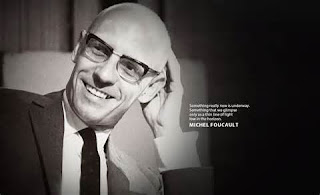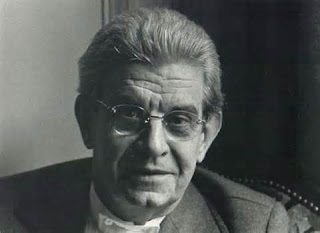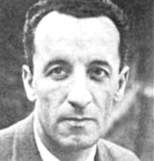Saturday, April 30, 2016
Sir Karl Raimund Popper (28 July 1902 – 17 September 1994)
Sir Karl Raimund Popper (28 July 1902 – 17 September 1994) was an Austrian-British philosopher and professor. He is generally regarded as one o.f the greatest philosophers of science of the 20th century
Karl Popper was born in Vienna (then in Austria-Hungary) in 1902, to upper middle-classparents. All of Karl Popper's grandparents were Jewish, but the Popper family converted toLutheranism before Karl was born, and so he received Lutheran baptism.
Popper left school at the age of 16 and attended lectures in mathematics, physics, philosophy, psychology and the history of music as a guest student at the University of Vienna. In 1919, Popper became attracted by Marxism and subsequently joined the Association of Socialist School Students. He also became a member of the Social Democratic Workers' Party of Austria, which was at that time a party that fully adopted the Marxist ideology. After the street battle in the Hörlgasse on 15 June 1919, when police shot eight of his unarmed party comrades, he became disillusioned by what he saw to be the "pseudo-scientific" historical materialism of Marx, abandoned the ideology, and remained a supporter of social liberalism throughout his life.
In 1928, he earned a doctorate in psychology, under the supervision of Karl Bühler. His dissertation was entitled "Die Methodenfrage der Denkpsychologie" (The question of method in cognitive psychology). In 1929, he obtained the authorisation to teach mathematics and physics in secondary school, which he started doing. He married his colleague Josefine Anna Henninger (1906–1985) in 1930. Fearing the rise of Nazism and the threat of the Anschluss, he started to use the evenings and the nights to write his first book Die beiden Grundprobleme der Erkenntnistheorie (The Two Fundamental Problems of the Theory of Knowledge). He needed to publish one to get some academic position in a country that was safe for people of Jewish descent. However, he ended up not publishing the two-volume work, but a condensed version of it with some new material, Logik der Forschung (The Logic of Scientific Discovery), in 1934. Here, he criticised psychologism, naturalism, inductionism, and logical positivism, and put forth his theory of potentialfalsifiability as the criterion demarcating science from non-science. In 1935 and 1936, he took unpaid leave to go to the United Kingdom for a study visit.[
Albert Einstein ( 14 March 1879 – 18 April 1955)
Albert Einstein ( 14 March 1879 – 18 April 1955) was a German-born theoretical physicist. He developed the general theory of relativity, one of the two pillars of modern physics (alongside quantum mechanics).Einstein's work is also known for its influence on the philosophy of science. Einstein is best known in popular culture for his mass–energy equivalence formula E = mc2 (which has been dubbed "the world's most famous equation"). He received the 1921 Nobel Prize in Physics for his "services to theoretical physics", in particular his discovery of the law of thephotoelectric effect, a pivotal step in the evolution of quantum theory.
Near the beginning of his career, Einstein thought that Newtonian mechanics was no longer enough to reconcile the laws of classical mechanics with the laws of the electromagnetic field. This led to the development of his special theory of relativity. He realized, however, that the principle of relativity could also be extended to gravitational fields, and with his subsequent theory of gravitation in 1916, he published a paper on general relativity. He continued to deal with problems of statistical mechanics and quantum theory, which led to his explanations of particle theory and the motion of molecules. He also investigated the thermal properties of light which laid the foundation of the photon theory of light. In 1917, Einstein applied the general theory of relativity to model the large-scale structure of theuniverse.
He was visiting the United States when Adolf Hitler came to power in 1933 and, beingJewish, did not go back to Germany, where he had been a professor at the Berlin Academy of Sciences. He settled in the U.S., becoming an American citizen in 1940. On the eve of World War II, he endorsed a letter to President Franklin D. Roosevelt alerting him to the potential development of "extremely powerful bombs of a new type" and recommending that the U.S. begin similar research. This eventually led to what would become the Manhattan Project. Einstein supported defending the Allied forces, but largely denounced the idea of using the newly discovered nuclear fission as a weapon. Later, with the British philosopherBertrand Russell, Einstein signed the Russell–Einstein Manifesto, which highlighted the danger of nuclear weapons. Einstein was affiliated with the Institute for Advanced Study inPrinceton, New Jersey, until his death in 1955.
Einstein published more than 300 scientific papers along with over 150 non-scientific works. On 5 December 2014, universities and archives announced the release of Einstein's papers, comprising more than 30,000 unique documents. Einstein's intellectual achievements and originality have made the word "Einstein" synonymous with "genius".
Einstein at 3.
Einstein at 3.
Friday, April 29, 2016
Jacques Derrida ( July 15, 1930 – October 9, 2004)
Jacques Derrida ( July 15, 1930 – October 9, 2004) was a French philosopher, born in Algeria. Derrida is best known for developing a form of semiotic analysis known as deconstruction, which he discussed in numerous texts, and developed in the context of phenomenology. He is one of the major figures associated with post-structuralism and postmodern philosophy.
During his career Derrida published more than 40 books, together with hundreds of essays and public presentations. He had a significant influence upon the humanities and social sciences, including—in addition to philosophy and literature—law, anthropology,historiography, linguistics, sociolinguistics, psychoanalysis, political theory, religious studies, feminism, and gay and lesbian studies. His work still has a major influence in the academe of Continental Europe, South America and all other countries wherecontinental philosophy is predominant, particularly in debates around ontology,epistemology (especially concerning social sciences), ethics, aesthetics, hermeneutics, and the philosophy of language. He also influenced architecture (in the form ofdeconstructivism), music, art, and art criticism.
Michel Foucault (15 October 1926 – 25 June 1984)
Michel Foucault (15 October 1926 – 25 June 1984) was a French philosopher, historian of ideas, social theorist, philologist andliterary critic. His theories addressed the relationship between power and knowledge, and how they are used as a form of social control through societal institutions. Though often cited as a post-structuralist and postmodernist, Foucault rejected these labels, preferring to present his thought as a critical history of modernity. His thought has been highly influential both for academic and for activist groups, such as within post-anarchism.
Jacques Marie Émile Lacan ( 13 April 1901 – 9 September 1981)
Jacques Marie Émile Lacan ( 13 April 1901 – 9 September 1981), known simply as Jacques Lacan, was a French psychoanalyst and psychiatrist who has been called "the most controversial psycho-analyst since Freud". Giving yearly seminars in Paris from 1953 to 1981, Lacan influenced many leading French intellectuals in the 1960s and the 1970s, especially those associated with post-structuralism. His ideas had a significant impact on post-structuralism, critical theory, linguistics, 20th-century French philosophy, film theory and clinical psychoanalysis
Lacan was born in Paris, the eldest of Emilie and Alfred Lacan's three children. His father was a successful soap and oils salesman. His mother was ardently Catholic—his younger brother went to a monastery in 1929 and Lacan attended the Jesuit Collège Stanislas during the period 1907–1918. During the early 1920s, Lacan attended right-wing Action Françaisepolitical meetings, of which he would later be highly critical, and met the founder, Charles Maurras. By the mid-1920s, Lacan had become dissatisfied with religion and became an atheist. He quarreled with his family over this issue.
Louis Pierre Althusser (16 October 1918 – 22 October 1990)
Louis Pierre Althusser (16 October 1918 – 22 October 1990) was a French Marxist philosopher. He was born in Algeria and studied at the École Normale Supérieure in Paris, where he eventually became Professor of Philosophy.
Althusser was a longtime member—although sometimes a strong critic—of the French Communist Party. His arguments and theses were set against the threats that he saw attacking the theoretical foundations of Marxism. These included both the influence of empiricism on Marxist theory, and humanist and reformist socialist orientations which manifested as divisions in the European communist parties, as well as the problem of the "cult of personality" and of ideology.
Althusser is commonly referred to as a structural Marxist, although his relationship to other schools of French structuralism is not a simple affiliation and he was critical of many aspects of structuralism.
Althusser's life was marked by periods of intense mental illness. In 1980, he killed his wife by strangling her. He was declared unfit to stand trial due to insanity, and was committed to a psychiatric hospital for three years. He did little further academic work, dying in 1990.
With the Twentieth Party Congress in 1956, Nikita Khrushchev began the process of "de-Stalinisation". For many Marxists — including the PCF's leading theoretician Roger Garaudy and the pre-eminent existentialist Jean-Paul Sartre — this meant the recovery of the humanistroots of Marx's thought, and the opening of a dialogue between Marxists and moderate socialists, existentialists, and Christians.Althusser, however, opposed this trend, proffering a "theoretical anti-humanism" and sympathising with the criticisms made by theCommunist Party of China, albeit cautiously. He was careful not to identify with Maoism. His stance during this period earned him notoriety within the PCF, and he was attacked by its secretary-general Waldeck Rochet. As a philosopher he was treading another path, which would later lead him to "aleatory materialism"; however, this did not stop him from defending Marxist orthodox thought in relation to his own position and work, such as in his 1973 reply to John Lewis.
Despite the involvement of many of his students in the events of May 1968, Althusser initially greeted these developments with silence.He was later to express an opinion similar to the official PCF line, describing the students as victim to "infantile" leftism. As a result, Althusser was attacked by many former supporters. In response to these criticisms, he revised some of his positions, claiming that his earlier writings contained mistakes, and a significant shift in emphasis was seen in his later works.
Maurice Merleau-Ponty ( 14 March 1908 – 3 May 1961)
Maurice Merleau-Ponty ( 14 March 1908 – 3 May 1961) was aFrench phenomenological philosopher, strongly influenced by Edmund Husserl and Martin Heidegger. The constitution of meaning in human experience was his main interest and he wrote on perception, art, and politics. He was on the editorial board of Les Temps modernes, the leftist magazine created by Jean-Paul Sartre in 1945.
At the core of Merleau-Ponty's philosophy is a sustained argument for the foundational role perception plays in understanding the world as well as engaging with the world. Like the other major phenomenologists, Merleau-Ponty expressed his philosophical insights in writings on art, literature, linguistics, and politics. He was the only major phenomenologist of the first half of the twentieth century to engage extensively with the sciences and especially with descriptive psychology. It is through this engagement that his writings have become influential in the recent project of naturalizing phenomenology, in which phenomenologists use the results of psychology and cognitive science.
Merleau-Ponty emphasized the body as the primary site of knowing the world, a corrective to the long philosophical tradition of placing consciousness as the source of knowledge, and maintained that the body and that which it perceived could not be disentangled from each other. The articulation of the primacy of embodiment led him away from phenomenology towards what he was to call “indirect ontology” or the ontology of “the flesh of the world” (la chair du monde), seen in his last incomplete work, The Visible and Invisible, and his last published essay, “Eye and Mind”.
Albert Camus ( 7 November 1913 – 4 January 1960)
 Albert Camus ( 7 November 1913 – 4 January 1960) was a French philosopher, author, and journalist. His views contributed to the rise of the philosophy known as absurdism. He wrote in his essay The Rebel that his whole life was devoted to opposing the philosophy of nihilism while still delving deeply into individual freedom. He won the Nobel Prize in Literature in 1957.
Albert Camus ( 7 November 1913 – 4 January 1960) was a French philosopher, author, and journalist. His views contributed to the rise of the philosophy known as absurdism. He wrote in his essay The Rebel that his whole life was devoted to opposing the philosophy of nihilism while still delving deeply into individual freedom. He won the Nobel Prize in Literature in 1957.
Camus did not consider himself to be a follower of the existentialist ideology despite usually being classified as a follower of it, even in his lifetime. In a 1945 interview, Camus rejected any ideological associations: "No, I am not an existentialist. Sartre and I are always surprised to see our names linked...".
Camus was born in Algeria to a Pied-Noir family, and studied at the University of Algiersfrom which he graduated in 1936. In 1949, Camus founded the Group for International Liaisons to "denounce two ideologies found in both the USSR and the USA".
He was the second-youngest recipient, at the age of 44, of the Nobel Prize in Literature, afterRudyard Kipling, at the age of 42.
Jean-Paul- Sartre ( 21 June 1905 – 15 April 1980)
De Beauvoir wrote novels, essays, biographies, autobiography and monographs on philosophy, politics and social issues. She is known for her 1949 treatise The Second Sex, a detailed analysis of women's oppression and a foundational tract of contemporary feminism; and for her novels, including She Came to Stay and The Mandarins. She is also known for her open relationship with French philosopher Jean-Paul Sartre.
| Jean-Paul Sartre | |
|---|---|
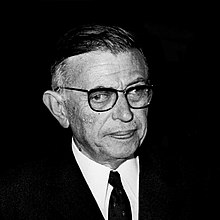
Sartre in 1967
| |
| Born | Jean-Paul-Charles-Aymard Sartre 21 June 1905 Paris, France |
| Died | 15 April 1980 (aged 74) Paris, France |
| Alma mater | École Normale Supérieure(BA/MA) |
| Era | 20th-century philosophy |
| Region | Western philosophy |
| School | Continental philosophy,Existentialism, Phenomenology,Existential phenomenology,[1]Hermeneutics,[1] Western Marxism (early), Anarchism (late) |
Main interests
| Metaphysics, epistemology,ethics, consciousness, self-consciousness, literature, political philosophy, ontology |
Notable ideas
| Bad faith, "existence precedes essence," nothingness, "Hell is other people," situation, "every positional consciousness of an object is a non-positional consciousness of itself,"[2][3]Sartrean terminology |
Influences[show]
| |
Influenced[show]
| |
| Signature | |
 | |
Jean-Paul-Charles-Aymard Sartre ( 21 June 1905 – 15 April 1980) was a French philosopher, playwright, novelist, political activist, biographer, andliterary critic. He was one of the key figures in the philosophy of existentialism andphenomenology, and one of the leading figures in 20th-century French philosophy andMarxism.
His work has also influenced sociology, critical theory, post-colonial theory, and literary studies, and continues to influence these disciplines.
Sartre has also been noted for his open relationship with the prominent feminist theoristSimone de Beauvoir. Together, Sartre and de Beauvoir challenged the cultural and socialassumptions and expectations of their upbringings, which they considered bourgeois, in both lifestyle and thought. The conflict between oppressive, spiritually destructive conformity(mauvaise foi, literally, "bad faith") and an "authentic" way of "being" became the dominant theme of Sartre's early work, a theme embodied in his principal philosophical work Being and Nothingness (L'Être et le Néant, 1943). Sartre's introduction to his philosophy is his work Existentialism and Humanism (L'existentialisme est un humanisme, 1946), originally presented as a lecture.
He was awarded the 1964 Nobel Prize in Literature but refused it, saying that he always declined official honours and that "a writer should not allow himself to be turned into an institution".
Jean-Paul Sartre was born in Paris as the only child of Jean-Baptiste Sartre, an officer of the French Navy, and Anne-Marie Schweitzer. His mother was of Alsatian origin and the first cousin of Nobel Prize laureate Albert Schweitzer. (Her father, Charles Schweitzer, was the older brother of Albert Schweitzer's father, Louis Théophile.) When Sartre was two years old, his father died of a fever overseas. Anne-Marie moved back to her parents' house in Meudon, where she raised Sartre with help from her father, a teacher of German who taught Sartre mathematics and introduced him to classical literature at a very early age. When he was twelve, Sartre's mother remarried, and the family moved to La Rochelle, where he was frequently bullied.
As a teenager in the 1920s, Sartre became attracted to philosophy upon reading Henri Bergson'sessay Time and Free Will: An Essay on the Immediate Data of Consciousness. He attended the Cours Hattemer, a private school in Paris. He studied and earned certificates in psychology, history of philosophy, logic, general philosophy, ethics and sociology, and physics, as well as his diplôme d'études supérieures (fr) (roughly equivalent to an MA thesis) in Paris at theÉcole Normale Supérieure, an institution of higher education that was the alma mater for several prominent French thinkers and intellectuals. (His 1928 MA thesis under the title "L'Image dans la vie psychologique: rôle et nature", "Image in Psychological Life: Role and Nature" was directed by Henri Delacroix.) It was at ENS that Sartre began his lifelong, sometimes fractious, friendship with Raymond Aron. Perhaps the most decisive influence on Sartre's philosophical development was his weekly attendance at Alexandre Kojève's seminars, which continued for a number of years.
From his first years in the École Normale, Sartre was one of its fiercest pranksters. In 1927, his antimilitarist satirical cartoon in the revue of the school, coauthored with Georges Canguilhem, particularly upset the director Gustave Lanson. In the same year, with his comrades Nizan, Larroutis, Baillou and Herland, he organized a media prank following Charles Lindbergh's successful New York–Paris flight; Sartre & Co. called newspapers and informed them that Lindbergh was going to be awarded an honorary École degree. Many newspapers, including Le Petit Parisien, announced the event on 25 May. Thousands, including journalists and curious spectators, showed up, unaware that what they were witnessing was a stunt involving a Lindbergh look-alike. The public's resultant outcry forced Lanson to resign.
In 1929 at the École Normale, he met Simone de Beauvoir, who studied at the Sorbonne and later went on to become a noted philosopher, writer, and feminist. The two became inseparable and lifelong companions, initiating a romantic relationship, though they were not monogamous. The first time Sartre took the exam to become a college instructor, he failed. He took it a second time and virtually tied for first place with Beauvoir, although Sartre was eventually awarded first place in his class, with Beauvoir second.
Sartre was drafted into the French Army from 1929 to 1931 and served as a meteorologist for some time. He later argued in 1959 that each French person was responsible for the collective crimes during the Algerian War of Independence.
From 1931 until 1945 Sartre taught at various lycées of Le Havre (at the Lycée de Le Havre, the present-day Lycée François-Ier (Le Havre) (fr), 1931–36), Laon (at the Lycée de Laon, 1936–37), and, finally, Paris (at the Lycée Pasteur, 1937–39, and at the Lycée Condorcet, 1941–44;.
In 1932, Sartre discovered Voyage au bout de la nuit by Louis-Ferdinand Céline, a book that had a remarkable influence on him.
In 1933–34, he succeeded Raymond Aron at the Institut français d'Allemagne (fr) in Berlin where he studied Edmund Husserl's phenomenological philosophy. Aron had already advised him in 1930 to read Emmanuel Levinas's Théorie de l’intuition dans la phénoménologie de Husserl (The Theory of Intuition in Husserl's Phenomenology).
The Neo-Hegelian revival led by Alexandre Kojève and Jean Hyppolite in the 1930s inspired a whole generation of French thinkers, including Sartre, to discover Hegel's Phenomenology of Spirit.
Jean Paul Sartre died in 1980 when more than 50,000 people attended his funeral.
Jean Paul Sartre died in 1980 when more than 50,000 people attended his funeral.
Subscribe to:
Posts (Atom)



